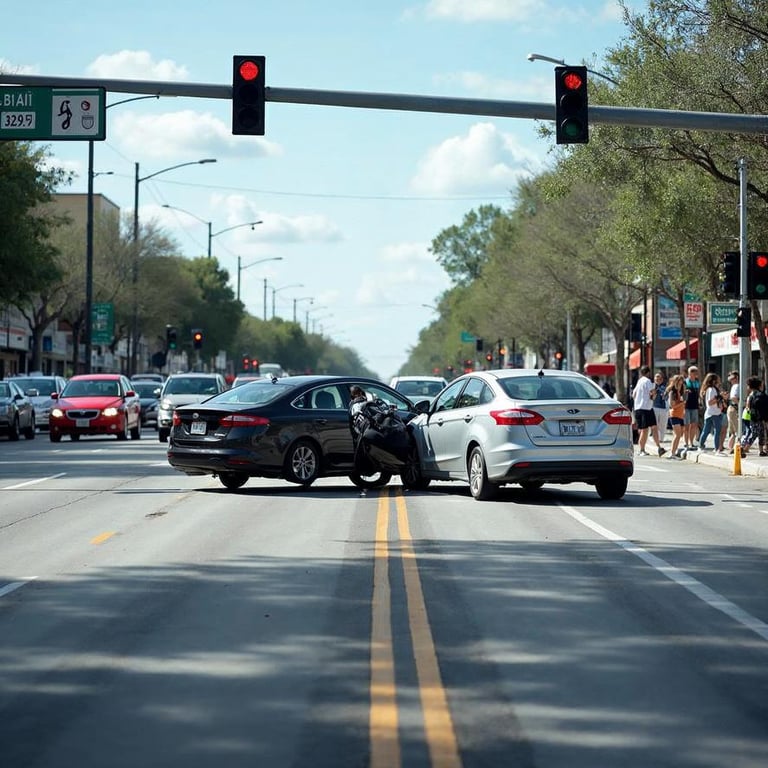
Unfortunately, based on your response, you may not qualify to file a claim. Most personal injury cases must be filed within two years of the accident, in accordance with the statute of limitations. Please consult with a licensed attorney to explore any possible exceptions or additional options.
Left-turn collisions are among the most common types of traffic accidents in Orlando and across the United States. These accidents often occur at intersections and can lead to severe injuries and property damage. Understanding how these collisions affect liability is crucial for anyone involved in or affected by such incidents.
There are several common reasons why left-turn accidents happen. These may include:
Knowing these causes can help drivers be more cautious and potentially avoid such accidents.
Liability in left-turn collisions typically hinges on who breached a traffic law or failed to exercise reasonable care on the road. In many cases, the driver making the left turn is found at fault for failing to yield to oncoming traffic. However, liability can vary depending on the specifics of the accident. Factors such as signal malfunctions, the behavior of other drivers, and road conditions can also influence fault determination.
Determining fault is important because it affects insurance claims and potential compensation for damages or injuries. For more detailed information on fault in complex scenarios, you can visit this guide on determining fault in multi-vehicle car accidents.
If involved in a left-turn collision in Orlando, it is essential to take the right steps to protect your interests and ensure proper documentation for any claims:
Check yourself and others for injuries and call emergency services if necessary. Prompt medical evaluation is critical, even if injuries seem minor at first.
Take photos of the vehicles, road conditions, traffic signals, and any visible damages. Collect contact information of all parties and witnesses involved. This documentation can be crucial for supporting your claim.
Notify the police and your insurance company about the accident. Providing accurate information as soon as possible can facilitate a smoother claims process.
Be aware of the insurance coverage involved and the claims process. For a comprehensive overview of how to file claims after a car accident, you can read this resource about car accident claims.
Insurance companies will examine the details of a left-turn collision carefully to determine liability and coverage responsibilities. Fault determination plays a significant role in how claims are settled and what compensation may be available for medical bills, vehicle repairs, lost wages, and pain and suffering.
Drivers involved in left-turn accidents should be aware of common challenges such as claim denials or disputes over fault. Being prepared with proper documentation and understanding your rights can help you navigate these challenges effectively.
While not all accidents are preventable, defensive driving techniques can reduce the risk of left-turn collisions. These include:
Driver education and awareness campaigns also play a role in reducing the frequency of these collisions.
If you or a loved one have been affected by a left-turn collision, it's important to access resources that can help you understand your situation and options. Resources from the National Highway Traffic Safety Administration are valuable for safety information and accident statistics. You can visit the NHTSA's page on left-turn accidents for more details.
Understanding how left-turn collisions affect liability in Orlando can empower drivers and accident victims to take appropriate action. By knowing the common causes, steps to take after an accident, and how liability is determined, individuals can better navigate the aftermath of these challenging incidents.
Unfortunately, based on your response, you may not qualify to file a claim. Most personal injury cases must be filed within two years of the accident, in accordance with the statute of limitations. Please consult with a licensed attorney to explore any possible exceptions or additional options.